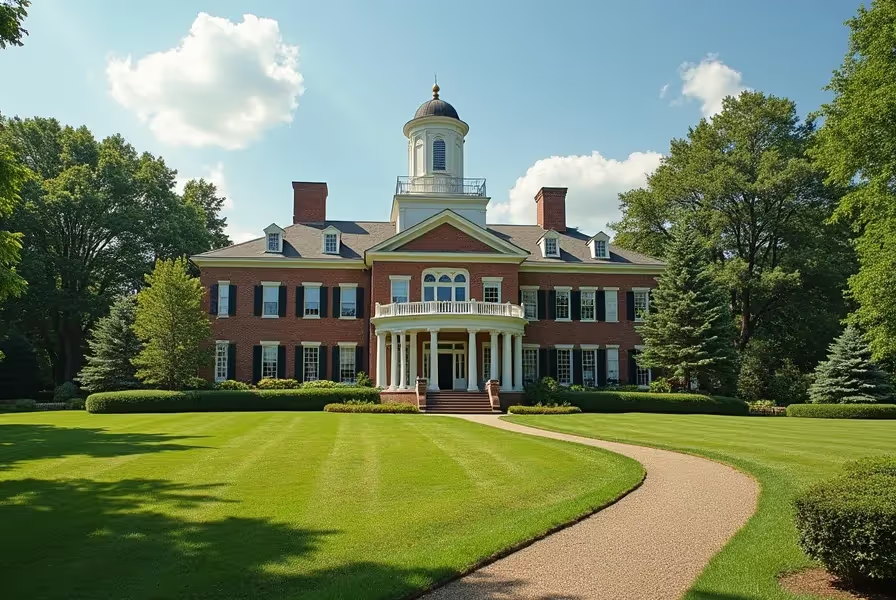Explore Georgia's Rich History Through These Iconic Landmarks
Georgia offers a wealth of historical landmarks that reflect its deep cultural roots and pivotal role in American history. For students pursuing history, education, or cultural studies, visiting these significant sites offers a unique opportunity to engage with the past. Whether you're interested in the Civil War, Native American heritage, or the Civil Rights Movement, Georgia has something to offer for every history enthusiast.
Why Visit Historical Sites in Georgia?
Exploring historical places in Georgia not only enhances your academic knowledge but also deepens your understanding of American history. These sites provide real-world context that textbooks can't replicate. Many of these locations are preserved as heritage sites and offer guided tours, museums, and archives—ideal for academic research and personal growth.
Top Historical Sites in Georgia You Should Visit
Below are some of the most visited and educationally valuable historical attractions in Georgia.
1. Martin Luther King Jr. National Historical Park – Atlanta
This landmark is one of the most important Civil Rights sites in the United States. It includes:
- Dr. King's childhood home
- Ebenezer Baptist Church, where he preached
- The King Center, housing archives and a memorial site
For anyone interested in African American history or social justice, this park is a must-see. Educational programs here are tailored for students and researchers alike.
2. Andersonville National Historic Site – Andersonville
This site offers a sobering look at the Civil War. It preserves the location of Camp Sumter, one of the largest Confederate military prisons. The site also includes:
- The National Prisoner of War Museum
- Historic prison grounds
- Memorials to American POWs from all wars
Great for those studying U.S. military, war history, or humanitarian issues.
3. Fort Pulaski National Monument – Savannah
Situated near the mouth of the Savannah River, Fort Pulaski played a key role during the Civil War. Noted for its advanced military engineering, it features:
- Restored fortifications and defensive structures
- Walking trails and guided historical tours
- Civil War reenactments and educational workshops
Ideal for military history students and engineering enthusiasts alike.
4. Chickamauga and Chattanooga National Military Park – Fort Oglethorpe
This site marks one of the most significant Civil War battles. It spans two states and includes:
- Extensive battlefield grounds
- Themed trails and monuments
- A comprehensive visitor center with historical exhibits
This park is particularly useful for in-depth Civil War research and battlefield studies.
5. Etowah Indian Mounds Historic Site – Cartersville
Etowah represents Native American culture in a prehistoric context. It is one of the most well-preserved Mississippian culture sites and features:
- Large earthen mounds used for ceremonies
- Excavated artifacts including tools and jewelry
- Interpretive museum with educational programs
Perfect for those studying anthropology, archaeology, or indigenous cultures.
6. Oakland Cemetery – Atlanta
More than just a burial ground, Oakland Cemetery is a historic landmark showcasing Victorian architecture and notable figures from Georgia’s past such as:
- Margaret Mitchell, author of Gone with the Wind
- Maynard Jackson, Atlanta's first African American mayor
- Confederate and Union soldiers
A unique site for those exploring Southern culture, literature, or urban history.
Frequently Asked Questions About Georgia's Historical Landmarks
What are the best historical places to visit in Georgia for students?
Students will benefit most from sites with educational resources and guided programs. The Martin Luther King Jr. National Historical Park, Andersonville National Historic Site, and Etowah Indian Mounds offer immersive learning experiences.
Are these historical sites appropriate for research or academic projects?
Yes. Most of these locations provide access to primary source materials, guided tours, and staff-led interpretations. They can be valuable for academic reports, theses, or cultural studies.
How can visiting historical places help my education?
Visiting these sites helps you retain historical knowledge better. It allows you to see artifacts and locations in person, which adds context and depth to your studies. It also broadens your critical thinking skills and cultural awareness.
Are these landmarks accessible year-round?
Most of Georgia's historical landmarks are open throughout the year. Some may have seasonal hours or special exhibits, so it's best to check in advance before your visit.
Plan Your Educational Journey Through Georgia’s History
Incorporating site visits into your educational journey makes history come alive. Walking where historical figures stood, viewing authentic artifacts, and studying well-preserved structures deepens both your understanding and appreciation of the subject.
As a student or lifelong learner, these must-see historical sites in Georgia offer more than tourism—they provide tools for growth, study, and future career inspiration. Make time to visit. It will enhance both your personal and academic development.











.svg)



